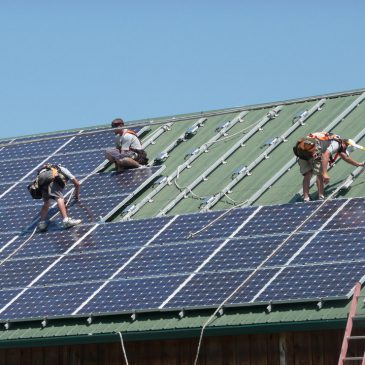What Homeowners Need to Know About Solar Power
The results are in and the overwhelming majority of scientists agree that climate change is a serious problem. A recent study suggested that if something is not done, there will be catastrophic consequences to the environment within 12 years. Fortunately, there is one easy thing that every homeowner can do right now, which is installing solar panels.
If you have been holding out on installing solar panels for your home because you’re not really clear how it all goes together, here are the basics.
How Do Solar Panels Work?
Very simple, solar panels attract and absorb the heat and light from the sun, and then they convert it into energy that you can use to power your home. Solar panel power can take the place of fossil fuels and other less renewable sources of energy. Sunlight is an effectively unlimited resource, so capturing it with solar panels can save you money and have a dramatically positive effect on the environment.
The standard solar panel array uses what are called photovoltaic (PV) cells. These cells populate the panel and are able to capture photons, the particles that the sun’s rays are made of. The cells are connected to silicon or some other semiconducting material, which coverts the sunlight into DC, or direct current electricity.
Most of us use AC, or alternating current, electricity in our homes, so the current must first flow into a connected inverter to turn it into AC, which then goes into your electrical box to be utilized by your various lights and appliances.
How Can Solar Panels Save Homeowners Money?
There are two ways where you can save a lot of money by installing solar panels. First of all, you can use solar panels to go totally “off the grid.” In this kind of set up, you completely disconnect from local utility’s power grid. This means you will not pay the electric company.
However, it also means that if the sun is not providing adequate energy, or you have not stored up enough in your solar panel batteries to get you through the night, you may not have all the power you need for your electric devices and lights.
Second – there’s net metering. A much more popular plan takes advantage of something called net metering, which means that your solar panel system is tied into the utility power grid. When you need more power than your panels are providing, you can draw electricity from the grid.
However, when your panels are providing a surplus of power, you can feed that excess power back into the grid for energy credit. This system can dramatically lower your electricity bills.
Starting With Solar Panels
Homeowners should know that starting with a solar panel array is quite simple. You can install your own solar panels, although it is recommended that you hire a professional. You can start with a small array, and if you enjoy the energy savings, expand to more of your roof. Solar is the wave of today, so homeowners should get in on it as soon as possible!

